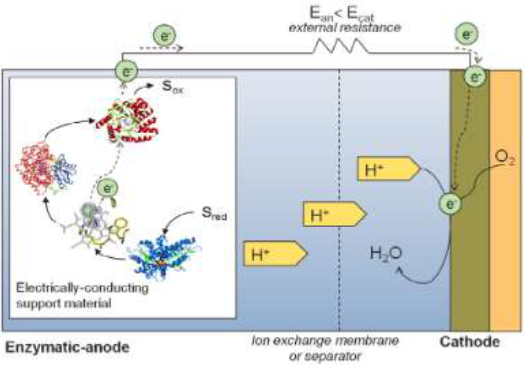Optimization of Method and Components of Enzymatic Fuel Cells
Keywords:
Enzymes, Fuel cells, Power generationAbstract
Enzymatic fuel cells produce electrical power by oxidation of renewable energy sources. An enzymatic glucose biofuel cell uses glucose as fuel and enzymes as biocatalyst, to convert biochemical energy into electrical energy. The applications which need low electrical voltages and low currents have much of the interest in developing enzymatic fuel cells. The cell was constructed using three different materials with different electrodes (Bitter leaf and Copper electrodes (BCu), Bitter leaf and Carbon electrodes (BC) and Water leaf and Carbon electrodes (WC)). The short circuit current and open circuit voltage were measured in micro-ampere (mu A) and milli-volt (mV) respectively at 30 minutes interval over the period of 12 hours (from dawn to dusk). The results which show that fuel cells constructed using bitter leaf with carbon electrode has the highest open circuit voltage, short circuit current and generated power of 162.8~mV, 1.65~ mu A and 268.62~nW respectively at 720~mins is obtained from the plots generated by the use of Microsoft Excel. The results show that all short circuit currents, voltages and powers generated increases with time and this is as a result of the exposure to solar radiation during the period of taking the measurement.

Published
How to Cite
Issue
Section
Copyright (c) 2019 Journal of the Nigerian Society of Physical Sciences

This work is licensed under a Creative Commons Attribution 4.0 International License.




